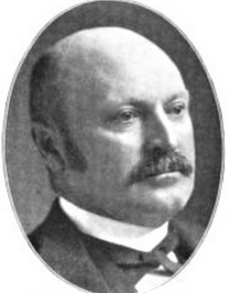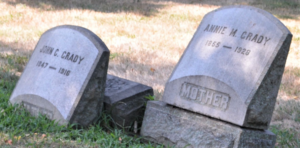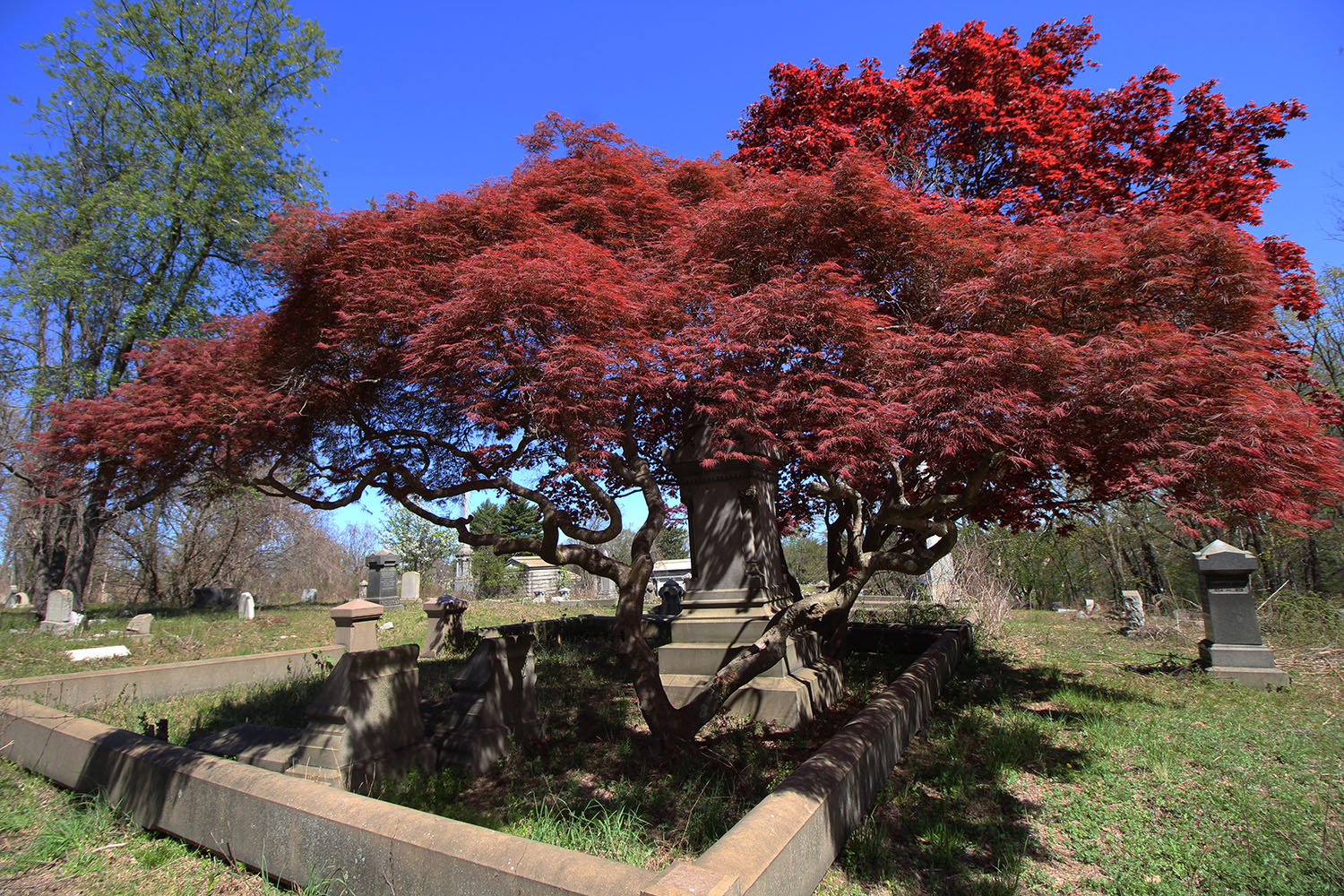Title: State Senator, attorney
Birthdate: October 8, 1847
Death Date: March 5, 1916
Plot Location: Section 123, Lot E

The easternmost city in the continental United States is appropriately named Eastport, Maine, where John was born. His Irish father and Massachusetts-born mother raised four other boys and a girl in the little island town less than a mile from the Canadian border. But John set his sights elsewhere.
He came to Philadelphia to attend the University of Pennsylvania Law School and was admitted to the Pennsylvania bar in 1871. Those who study law often want to be involved in the enactment of laws. John immediately immersed himself in Republican party politics in Philadelphia. At the same time, a relationship with Annie Clark led to marriage in 1875, and they started a family.
He ran for the State Senate in the nation’s Centennial year and won. His constituents approved of his work and kept sending him back to Harrisburg for a record-setting total of 28 years. Along with that tenure came seniority in various ways: John was President Pro-Tempore from 1887-1890, chairman of the Republican Caucus, and he chaired the Finance and Judiciary Committees at various times.
Early in his career he received a special honor. Former President Ulysses S. Grant completed an around-the-world tour when he arrived in Philadelphia on December 16, 1879. John chaired a special legislative committee to welcome the General and was among the dignitaries in a mile-long parade through Center City. An estimated 350,000 spectators lined the streets.
According to his obituaries, John’s greatest accomplishment was writing the legislation that created the Pennsylvania Superior Court, for which he came to be known as “the father of the Superior Court.” He also authored a number of laws that were copied by other states, including the “fugitives from justice” and “title insurance” acts.
Meanwhile, financial prosperity afforded the Grady family a comfortable home near Logan Square and domestic help from two servants. Three children brought laughter and joy when William was born in 1877, George in 1878, and Anna in 1880. Tragically, all three of them succumbed to diphtheria during one week in November, 1882, and all were buried at Mount Moriah.
Recovering from a tremendous loss, Annie gave birth to Helen, Stanley, and Elizabeth, and the family moved to another home south of Logan Square. Each of those lived to adulthood, but a fourth child, Marie died at age 5. Ironically, she also died of diphtheria.
After his retirement from the Senate, John was appointed by the Mayor to be the first director of the Department of Docks, Wharves, and Ferries, where he served from 1907-1909. Then he served as president of the board of trustees of the Medico-Chirurgical College and Hospital of Philadelphia.
It was there that he was hospitalized, suffering from uremic poisoning. John died there in 1916, joining the four children taken by diphtheria. The three surviving children provided matching  graves labeled “Father” and “Mother” after Annie died in 1928.
graves labeled “Father” and “Mother” after Annie died in 1928.

Support the Friends of Mount Moriah
Help us in our mission to restore and maintain the beautiful Mount Moriah Cemetery by donating to our cause or volunteering at one of our clean-up events.

